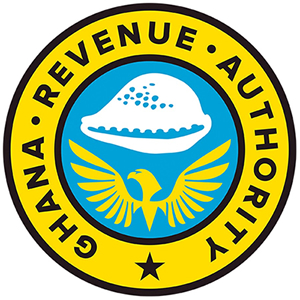GRA begins enforcing Excise Tax Stamp policy in Upper East Region
 The Ghana Revenue Authority (GRA) in the Upper East Region, has embarked on a programme to enforce the Excise Tax Stamp Policy, as part of measures to prevent excisable products without Tax Stamp from being sold to the public.
The Ghana Revenue Authority (GRA) in the Upper East Region, has embarked on a programme to enforce the Excise Tax Stamp Policy, as part of measures to prevent excisable products without Tax Stamp from being sold to the public.
The nationwide activity is part of efforts instituted by the revenue mobilization institution to ensure that all distributors, wholesalers and retailers comply with the Excise Tax Stamp policy and have the tax stamp affixed on their products.
The Tax Stamp Policy, which emanates from the Excise Stamp Act passed by Parliament in 2013, Act 873 prescribes that all alcoholic and non alcoholic carbonated beverages, bottled water, cigarettes and other tobacco products were embossed with the Tax Stamp before being released to the market or sold to the customers.
The Excise Tax Stamp is a specifically designed stamp with digital and other security features, which is supposed to be affixed on specified excisable products produced locally or imported to provide enough guarantee of product authenticity as well as show that taxes and duties have been paid or will be paid.
This is to control the importation and local production of excisable goods for revenue purposes, check the illicit trading, smuggling and counterfeiting of excisable products, check under-declaration of goods, and protect and increase revenue mobilization for national development.
To ensure this an ultimatum of six months was given to all distributors, wholesalers and retailers, which started on March 1, 2018, to have the Tax Stamp affixed on their products.
The Upper East Special Revenue Mobilization Task Force led by Mr Ekow Ampah, Senior Revenue Officer of GRA, inspected stores including Lesken Enterprise Limited, Rain In Supermarket, Abrantie Annex, Get Rich Supermarket among others in Bolgatanga.
During the inspection, it was discovered that some of the excisable products in almost all the stores visited had the Tax Stamp on them, while some products in the same stores did not have.
According to most of the owners of the shops, the products that had no Tax Stamp were old stocks, which were taken before the implementation of the policy took effect.
Despite their explanation, the team instructed them to take off the products from the shelves and ensure that the Tax Stamps were affixed on them before they were being sold to the final consumer.
Mr Ampah explained that the manufacturing companies had received some of the Tax Stamps from their outfit and were supposed to distribute them to the various wholesalers and retailers to affix on the old products.
“We even made announcements that anybody who has old stock should apply to our office, indicating the kind of products and the number, then we will come and verify and give you the Tax Stamps free to affix on them.”
He therefore warned dealers in excisable products against accepting excisable products that had no Tax Stamp on them from their distributors and warned them, “when we come back to see such products, you will be arrested and prosecuted according to the law.”
Whilst admonishing the public against purchasing excisable products that did not have the Tax Stamp on them, the Senior Revenue Officer appealed to the media to intensify public education on the relevance of the Tax Stamp on excisable products.
Source: GNA
